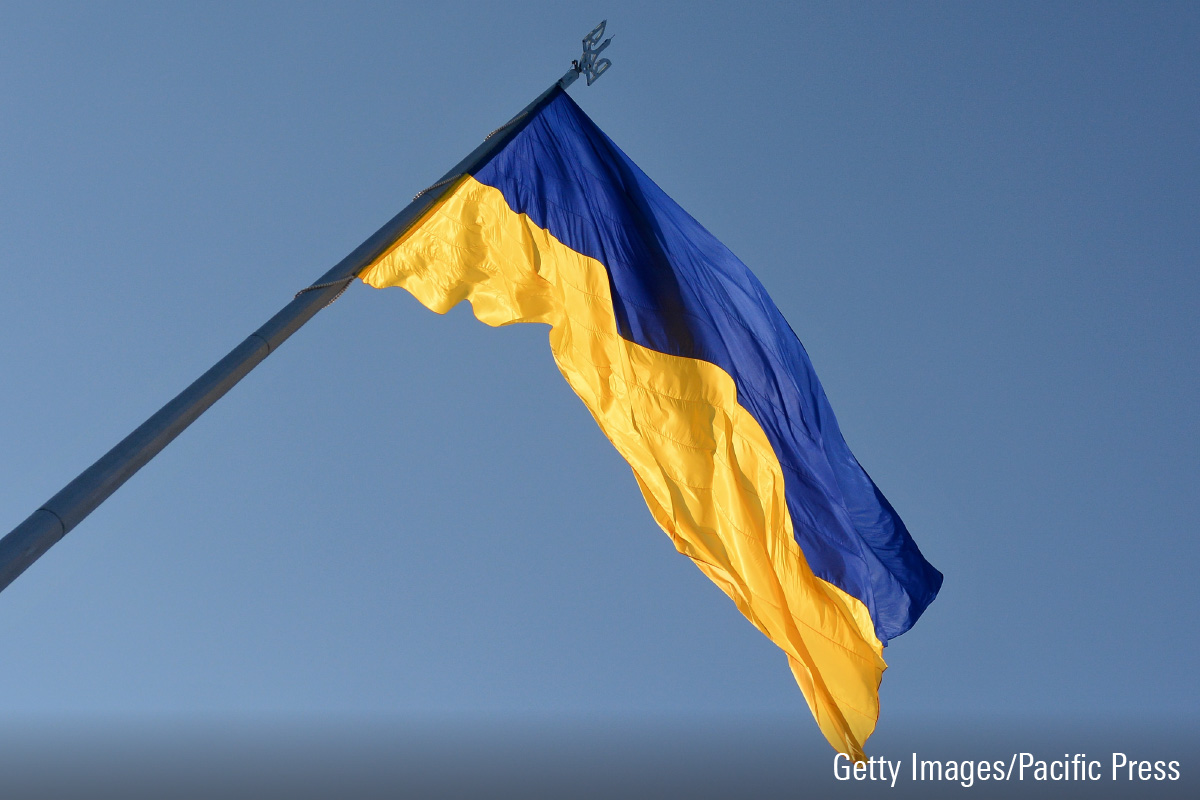What Comes Next in the Markets After Russia Invasion
Strategists weigh in: watch inflation and the Fed.

In an act of aggression not witnessed in the post-World War II era, Russia’s invasion of Ukraine added to the list of uncertainties facing investors.
What’s the best way to navigate the markets? Where are the opportunities? We asked several leading market observers for their opinions on what investors should expect next. We highlighted some of their thoughts here, but here’s an expanded look at their views:
Geopolitics vs Economics
“This was a major shock,” says Ed Yardeni, president and chief investment strategist for Yardeni Research, which provides global investment advice and analysis. “But the U.S. economy will weather the geopolitical storm. When the markets rebound it will reinforce the historical evidence that geopolitical events represent buying opportunities.”
Yardeni recommends sticking to his “stay at home” theme, saying “overweighting U.S. stocks makes more sense” as Europe will be “challenged” near-term by its proximity to the violence and the potential refugee crisis resulting from the war. He notes, too, he is hearing concerns--mostly among European clients--about possible margin calls resulting from skyrocketing oil and agricultural prices that could undermine some financial firms.
Still, the invasion “increases the chances of a recession” especially if consumers, already staring at higher energy and food bills, tighten their purse strings. Inflation, instead of waning in the next few months as he had expected, might become further entrenched if oil and agricultural prices stay high due to sanctions and supply chain disruptions become further exacerbated. Russia is responsible for 33% of the world supply of palladium, a metal that is critical to the automobile industry.
Morningstar’s chief U.S. market strategist David Sekera maintains, too, the biggest risk to U.S. stocks is the potential for “heightened inflationary costs,” if sanctions are imposed on Russian oil and natural gas, and agricultural crops such as wheat, noting Russia and Ukraine account for 25% to 30% of global wheat exports. The biggest risk to markets, he says, would be if the U.S. became directly engaged in the conflict.
“History has shown,” says Andy Kapyrin, co-chief investment officer of RegentAtlantic, a Morristown, N.J.-based registered investment advisor with $6 billion under management, “that there is an immediate market reaction driven by fear of the unknown, but markets tend to recover quickly because there's not a lot of impact on major economic fundamentals, especially in developed countries.”
Watch the Fed
Says Yardeni: “Today’s events throw cold water on the extreme hawkishness expressed by some Fed governors. They will likely slow down the pace and deliver 25 basis points in March.” He also expects the Fed to maintain assets on its balance sheet and delay the planned runoff it had previously announced.
Kapyrin expects the Fed to embark on the fastest pace of rate hikes since 2002-2003. “The Fed will move aggressively regardless of what’s going on with Russia,” he says.
Sector Calls
Since the Fed telegraphed its plans to tighten monetary policy, the technology sector has underperformed and Kapyrin expects that trend to continue. “U.S. fundamentals are robust but the large allocation to technology stocks in the indexes could keep the U.S. out of favor for a while.”
He is a fan of cyclical stocks, which he considers well positioned as the pandemic recedes, and international stocks, which were trading at good valuations and have become more of a bargain since the invasion.
“The better opportunity is in Europe,” says Kapyrin. “U.S. investors should evaluate their positions abroad and if they have less than a 25% weighting in international they should ratchet it higher.”
In addition to the technology sector, Kapyrin cautions against investing in small-cap companies that are unprofitable and debt laden--of which the Russell 2000 is chock full.
Jim Paulsen, chief investment strategist at Minneapolis-based institutional research outfit Leuthold Group, is optimistic by the amount of pessimism in the market and sees the Russian invasion as an "emotional” event that could be the “final washout event of the correction” for the S&P 500.
He is encouraged by the pessimism displayed in the VIX, the volatility index, the AAII (American Association of Individual Investors) sentiment survey, the bull-bear ratio and put-call ratios as reasons to be bullish. Corporate fundamentals are “extraordinarily good” and should continue to be strong. Among U.S. stocks, he’s a fan of cyclicals and small caps. For small-cap exposure, he suggests IJR (iShares Core S&P Small Cap ETF).
Still, Paulsen predicts “international stocks will outperform the S&P 500 for the rest of the year,” and advises investors to take advantage. Among developed markets, he favors Australian stocks and Euronext NV (ENXB) for exposure to Europe.
His other advice: “Stay away from bonds. Bond yields will go quite a bit higher.”
Watch Valuations
“While we continue to think value stocks are attractive and will benefit from consumer and economic normalization over the course of the year; however, following the bear market in growth stocks we find a significant number of attractive opportunities for investors,” says Morningstar’s Sekera.
“Geopolitical events are notoriously hard to predict, and any new escalation ahead could still derail the markets,'' he says. “However, for long term investors, based on a composite of our equity valuations, the U.S. markets are trading within range we consider to be fairly valued, in fact the market is now trading near the bottom of that fair value range.”

/s3.amazonaws.com/arc-authors/morningstar/ed88495a-f0ba-4a6a-9a05-52796711ffb1.jpg)
/cloudfront-us-east-1.images.arcpublishing.com/morningstar/T5MECJUE65CADONYJ7GARN2A3E.jpeg)
/cloudfront-us-east-1.images.arcpublishing.com/morningstar/VUWQI723Q5E43P5QRTRHGLJ7TI.png)
/d10o6nnig0wrdw.cloudfront.net/04-22-2024/t_ffc6e675543a4913a5312be02f5c571a_name_file_960x540_1600_v4_.jpg)
:quality(80)/s3.amazonaws.com/arc-authors/morningstar/ed88495a-f0ba-4a6a-9a05-52796711ffb1.jpg)